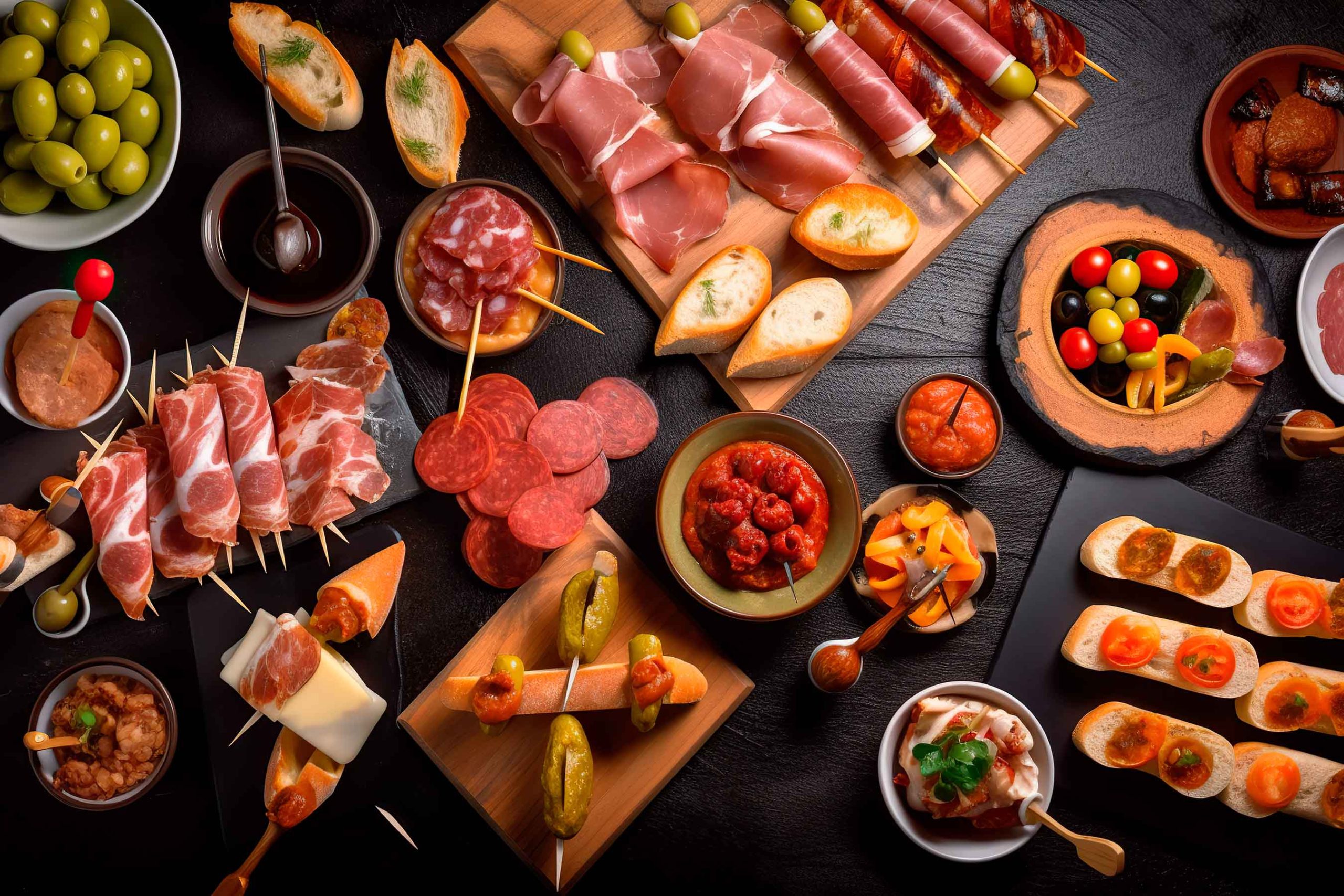Explore how cultural differences affect diet and nutrition, and how an English-speaking nutritionist in Madrid can help combining cultural dietary practices with healthy eating habits.
Moving to another country often involves significant changes in lifestyle habits, including eating habits. These changes can be due to a variety of factors, and it is important to be prepared to adapt to new practices and environments. The timing of (late) meals, for example, is something that comes as a big surprise to foreigners when they move to live in Spain.
In our country, food has a significant cultural, social, and economic importance as well as playing a central role in people’s daily lives. Spanish gastronomy is internationally renowned for its diversity, richness of flavours and the importance given to fresh, local ingredients. In addition, the socialising around food reflects the richness of the Spanish culinary tradition.

Cultural differences of food in Spain
This deep-rooted tradition of Spanish food can have a negative impact on the eating habits of people moving to Spain. It must be understood that cultural differences can have a significant impact on people’s nutrition. Here are some ways in which cultural differences can affect nutrition:
- Food preferences: Cultures have different preferences for tastes, textures, and types of foods. For example, some cultures may base their diet on spicier foods, while others may prefer milder or sweeter foods. These preferences can affect food choices and thus, the nutritional quality of the diet.
- Dietary patterns: Cultures also have specific dietary patterns, which may influence the frequency and quantity of meals consumed. Some cultures may have a habit of eating several small meals throughout the day, while others may opt for larger meals at certain times.
- Symbolic meanings of food: Food may have symbolic meanings in different cultures. Some foods may be associated with celebrations, rituals, or special events. This may influence the amount and type of food consumed on certain occasions, affecting nutritional intake.
- Food availability: The availability of certain foods may vary according to geographical region and climatic conditions. This can affect the variety and quantity of food available in each culture, which in turn influences the nutrition of the population.
- Social norms: Social norms around food, such as the acceptance or rejection of certain foods, can be strongly influenced by culture. These norms can affect food choices and quantity consumed.
- Gender roles: In some cultures, gender roles can affect nutrition, as expectations about who cooks, buys food, or decides about meals may vary. This can influence the quality and quantity of food consumed by different members of society.
- Tradition and intergenerational transmission: Recipes and food practices are often passed down from generation to generation. Culinary traditions can influence the choice of foods and how they are prepared, which affects the nutritional quality of the diet.
- Religious beliefs: Religious beliefs may have specific dietary restrictions that affect eating habits. For example, some religions may prohibit certain types of meat or processed foods.

How to find a balance between diet and culture
Finding a balance between diet and culture is essential to promote healthy and sustainable eating habits. Often moving to another country is synonymous with changes in our eating patterns, which can have a negative impact on our health. Seeing a Spanish nutritionist who speaks English and has lived in Australia can be beneficial for us as she will consider the following aspects:
- Respecting cultural preferences: Recognising and respecting the food preferences and culinary traditions of both countries is fundamental. This involves understanding the ingredients, cooking methods and food combinations that are significant in that culture. As a nutritionist, my job is to help combine aspects of both cultures to achieve a good diet.
- Adapt nutritional recommendations: It is important to adapt nutritional recommendations to the specific preferences and needs of a cultural community. This may include adapting dietary guidelines to reflect the most common dietary choices and to respect cultural or religious restrictions.
- Culturally sensitive nutrition education: Develop nutrition education programmes that take into account dietary practices and cultural beliefs. This helps people understand how to make healthy dietary choices within their cultural context.
- Incorporate local and seasonal foods: Encouraging the consumption of local and seasonal foods can be beneficial for both health and sustainability. Moreover, this aligns with many traditional food practices that have evolved to take advantage of the products available in the region. In Spain we have a great diversity of agricultural and livestock production that provides us with nutrient-rich foods.
- Promote dietary diversity: Encouraging dietary diversity is essential to ensure a balanced intake of nutrients. This can include exploring lesser-known but nutritious traditional foods.
- Celebrate festivals and cultural events with food: Integrating food into cultural celebrations and events strengthens the links between food and cultural identity. This can make people feel more connected to their traditions and at the same time promote healthy food choices. Spain is a country with a great diversity of festivities in which we eat traditional foods. Including us in our diet is a way of integrating into the new society.
- Address specific health challenges: Recognise and address specific health challenges within a cultural community. Some communities may face specific health issues related to diet, and it is important to address these issues in a culturally sensitive manner.
- Encourage home cooking: Promoting home cooking can be an effective way to maintain culinary traditions while controlling the quality of ingredients and portions.
- Adapt to cultural changes: Recognise that cultures evolve and change over time, and that eating habits may also change. Adapting to these cultural changes without losing sight of the importance of nutritional health is crucial.

In summary, consultation with a nutritionist when moving to another country can be essential to ensure that you maintain a balanced, healthy diet adapted to your new situation. Finding a balance between diet and culture involves respecting and celebrating traditional food practices while promoting choices that are beneficial to health and sustainable in the long term.
About the author:
Adriana Martín is a clinical nutritionist at Sinews. She sees adults, adolescents and children seeking to improve their health through food. She specialises in public health and also treats ED, SIBO, chronic diseases and other pathologies, as well as muscle mass gain or weight loss. Her approach is not to prescribe closed menus, but to make people understand the importance of nutrition at every stage of life through different tools.
Sinews MTI
Psychology, Psychiatry and Speech Therapy

